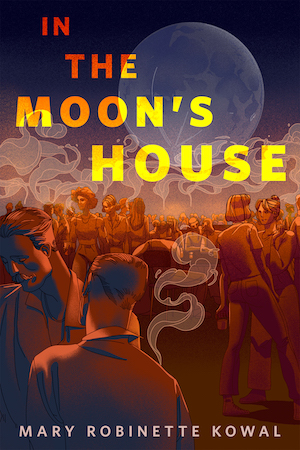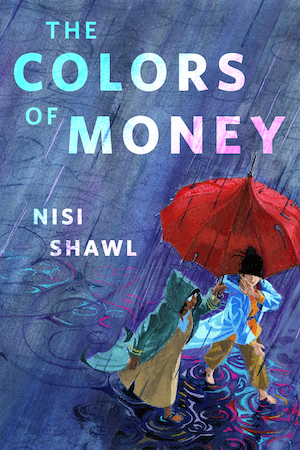Tor.com is pleased to reveal the cover for Lindsay Smith’s Dreamstrider, a high-concept espionage novel set in a world where dreams are the ultimate form of political intelligence.
Below, get a look at the full cover designed by Elizabeth H. Clark and illustrated by NastPlas, a creative duo based in Madrid, Spain. Author Lindsay Smith also shares her thoughts on the inspirations behind writing the novel, as well as what dreams mean in the world she has created. Dreamstrider publishes October 6th from Roaring Brook Press.

From author Lindsay Smith:
I was inspired to write Dreamstrider, not because of a dream I had (though that would be fitting!), but from thinking about dreams. Both kinds of dreams. There’s the kind we have while asleep, the kind that never make sense or only make sense in retrospect, but that nonetheless feel both completely sensible and utterly inescapable while we’re deep in them. Those certainly play a major role in Dreamstrider. But there are also the dreams that are more synonymous with wishes, fantasies, goals, yearnings—and Dreamstrider deals with those, too. In the world of Dreamstrider, the people of the Barstadt Empire believe that the Dreamer gives them their dreams to inspire them toward greatness, but they have to figure out the path to greatness for themselves—and given the extreme social disparities that exist in Barstadt, that path is far harder for some than others.
But Dreamstrider also deals with what happens after you achieve your dreams, or at least part of them. Livia has led a blessed existence—she escaped the lowest social caste at a young age and is able to use her gift as a Dreamstrider to perform meaningful work for the Empire. But she also struggles with feeling like an impostor—not only because she literally pretends to be other people (while occupying their bodies, no less!), but because she doesn’t feel like she’s good enough, clever enough, powerful enough to realize a Dreamstrider’s full potential.
I wrote Dreamstrider shortly after I sold my first novel, Sekret, and was wrestling with this feeling myself—you can make your dreams come true, but they’ll never manifest as flawlessly as you imagined, and the work of achieving a dream is never done. I know many writers and other professionals deal with this fear: we worry that our success is a fluke, or that we’ve been promoted beyond our level of competence, and will soon be exposed. In that sense, Dreamstrider was inspired by questions of identity, and Livia has lots of those to answer: who is she when she isn’t posing as someone else? Does she deserve the status she’s been given? Should she support a system that has been very generous to her, but is much less so to others who were in her position who might be just as deserving?










